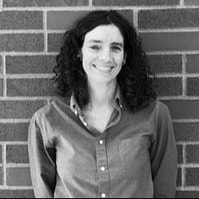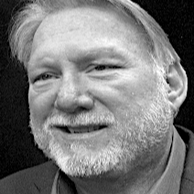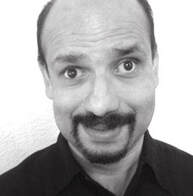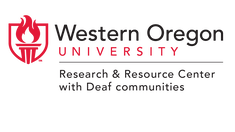Halene Anderson

Halene (Hal) Anderson grew up immersed in ASL and English with a Deaf father and hearing mother. She has been interpreting professionally since 1995, is RID certified CI/CT, holds a BA in ASL/English Interpreting and a MS in Deaf Education. She has taught courses in the interpreting program at Western Oregon University and has presented workshops on discourse analysis, interpreting in educational settings, and working in Deaf/hearing interpreter teams. Additionally, she contracts with DBI to provide consultation, interpretation, and voice narration for online PTASL video materials. Halene enjoys creatively exploring language and the interpreting process and when she is not freelance interpreting, she can be found swimming, knitting, and hiking with her family.
Mark Armstrong

Mark Armstrong is the Senior Adult Program Specialist for Helen Keller National Center. He works with seniors, age 55 and “better” who have combined vision and hearing loss. Mark facilitates the National Confident Living Program at the Helen Keller National Center in Sands Point, NY, and On-the-Road throughout the United States. Mark attended Western Michigan University and is a Certified Vision Rehabilitation Therapist (CVRT). He has been married to his wife Kay for 30 years.
Anindya "Bapin" Bhattacharya

Anindya "Bapin" Bhattacharya is DeafBlind and works as the coordinator of the National Outreach Technology Development and Training Program at the Helen Keller National Center (HKNC). His responsibilities include 1) training consumers and technology trainers from all over the nation who have a wide range of vision and hearing loss to use computers via braille access, screen magnification, and speech output, 2) evaluating and beta testing various Windows- and Mac OS X-based applications, prototypes of new products, and telecommunications equipment and services for people with access needs, and 3) communicating with key people involved with designing and manufacturing these products to ensure they are accessible, user-friendly, and cost-efficient.
Bapin is also in charge of the Florida and Iowa DeafBlind equipment distribution programs and travels back and forth between these states every 2-3 months to provide technology assessments, distribute equipment, and training to all eligible consumers. He is additionally responsible for researching, purchasing equipment, and installing and configuring equipment prior to distribution.
Bapin also runs a digital online store business and is the chief executive officer of the company, Bapin Group, LLC. The company sells all digital products to customers with all kinds of backgrounds, as well as to educational and government establishments.
Bapin also serves as a member of the Coalition of Organizations for Accessible Technology (COAT) to make contributions and monitor legislative activities that improve accessibility for people with disabilities including DeafBlindness.
Bapin is also in charge of the Florida and Iowa DeafBlind equipment distribution programs and travels back and forth between these states every 2-3 months to provide technology assessments, distribute equipment, and training to all eligible consumers. He is additionally responsible for researching, purchasing equipment, and installing and configuring equipment prior to distribution.
Bapin also runs a digital online store business and is the chief executive officer of the company, Bapin Group, LLC. The company sells all digital products to customers with all kinds of backgrounds, as well as to educational and government establishments.
Bapin also serves as a member of the Coalition of Organizations for Accessible Technology (COAT) to make contributions and monitor legislative activities that improve accessibility for people with disabilities including DeafBlindness.
Helen Keller National Center for DeafBlind Youths & Adults (HKNC)

Authorized by an Act of Congress in 1967, HKNC is the only organization of its kind—providing training and resources exclusively to people age 16 and over who have combined vision and hearing loss.
Students travel from across the country to our headquarters in Sands Point, New York, for on-campus training in assistive technology, vocational services, orientation and mobility, communication and independent living, and our regional offices bring HKNC resources to communities throughout the United States.
Our instructors are sensitive to the cultural differences between students with different levels of hearing and vision loss and varying educational backgrounds, providing individualized training and guidance to each student.
HKNC also is a leader in professional learning, “training the trainers” to work with the DeafBlind community.
HKNC is the national division of Helen Keller Services, which also includes Helen Keller Services for the Blind, a regional division serving the New York City/Long Island area.
Students travel from across the country to our headquarters in Sands Point, New York, for on-campus training in assistive technology, vocational services, orientation and mobility, communication and independent living, and our regional offices bring HKNC resources to communities throughout the United States.
Our instructors are sensitive to the cultural differences between students with different levels of hearing and vision loss and varying educational backgrounds, providing individualized training and guidance to each student.
HKNC also is a leader in professional learning, “training the trainers” to work with the DeafBlind community.
HKNC is the national division of Helen Keller Services, which also includes Helen Keller Services for the Blind, a regional division serving the New York City/Long Island area.

